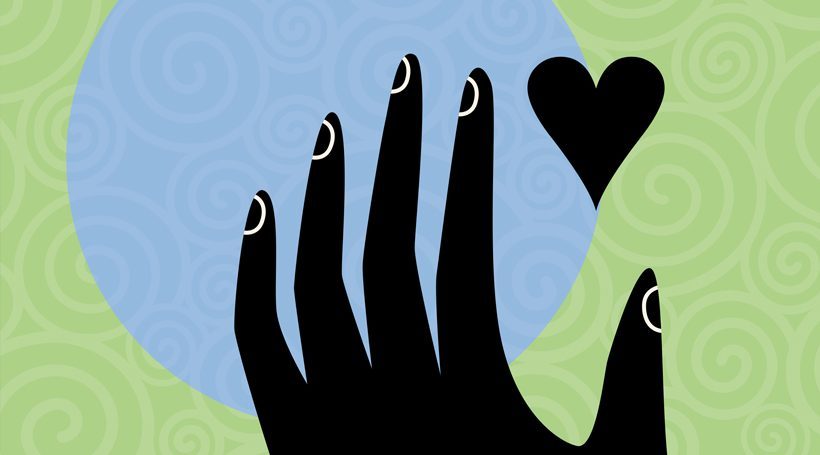Before the end of the day, 17 people in the United States will die waiting for an organ transplant. In the time it takes you to read this story, one new name will be added to the transplant waiting list. The need for organ and tissue donation is huge. And while 95 percent of people support organ donation, only 58 percent are registered donors, according to the U.S. Department of Health and Human Services. The Gift of Life Donor Program, which covers South Jersey (as well as eastern Pennsylvania and Delaware), has led the nation each year since 2008, coordinating more organ and tissue donations than any other region in the country. Still, in this region alone there are more than 5,000 men, women and children waiting for a life-saving transplant. Across South Jersey, transplant recipients and the families of deceased donors alike are working to save more of those lives, telling their stories and urging everyone to give the gift of life.
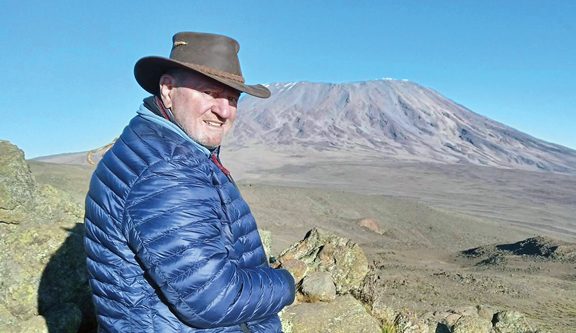
“I feel a responsibility to take care of my donor’s soul, as best I can.” – Peter Matthews
When you ask Peter Matthews how old he is, the Oaklyn resident won’t give you a straight answer. Instead, he says he’s “64+6.” That’s because 6 years ago he began a brand-new life, thanks to a liver donation from a young man whose name he doesn’t know.
Matthews’ liver disease had been under control until the fall of 2017, when he “got really, really sick, really quickly. They told me a transplant was the only way I was going to survive,” he says. Matthews was close to death when a match was found: a deceased young man in Pennsylvania whose family had chosen to donate his organs.
It’s a gift that Matthews, a father to 5 and grandfather of 3, doesn’t take for granted. “I’m living a wonderful life,” he says. “I wake up saying thank you and never, ever have a bad day.”
Gift of Life protects the identities of donor families, unless they choose to be in communication with recipients. But through the organization, Matthews has been able to write to his donor’s family.
“I say that I want to live a life that the kid would be proud of and that his family would be proud of,” he says. “I try and tell them little things that have happened. You know, my grandkids did this, we did that, how simply wonderful my life is, and what I’m trying to do: Live it for him. Live the life he couldn’t live.”
Matthews feels his liver donor’s presence all the time. In a literal sense, he’s carrying around the young man’s DNA. In a more philosophical fashion, Matthews feels responsible for safeguarding a part of his soul.
“I talk to him, and he talks back,” Matthews says. “I thought I was crazy until I started speaking to other recipients: It’s a phenomenon that many transplanters feel.”
Whenever something good happens, Matthews is sure to celebrate alongside his donor, whose gift ensured Matthews was around to enjoy it. And enjoy it he has: A few years ago, he summited Mount Kilimanjaro.
“Even if the kid lived, maybe he never gets to Africa to climb the tallest freestanding mountain on the planet,” Matthews says. “So I did it for us both. When I got to the top, I looked north to North Africa, East to the Indian Ocean and Kenya, South to Mozambique and then West, over through Uganda to West Africa. And it felt good. I spoke to the kid then. I said, ‘We made it.’”
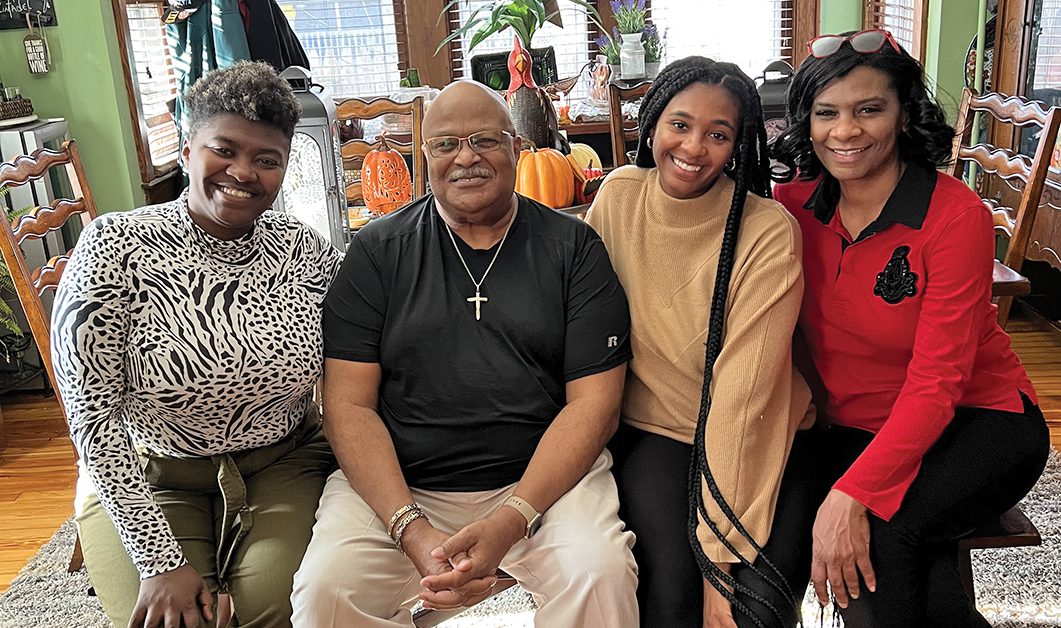
“The test showed we were a match. A perfect match.” – Bill Sumiel
On his very last day as an Uber driver, Tim Letts gave Bill Sumiel a ride. The trip would change both of their lives.
Sumiel, a Salem native who served for many years on the town’s school board and as its city council president, was diagnosed with Type II diabetes in 1995. Years of taking medication for the condition caused irreparable damage to his kidneys. In 2017, he started dialysis and was placed on the transplant list.
In 2020, Sumiel, now 74, needed a ride home from his vascular center in Vineland. The center called him an Uber. “The driver was an outgoing person, so it was easy to strike up a conversation for our 40-minute ride,” says Sumiel. “I told the driver about being on dialysis and needing a kidney.”
Tim Letts, an Army veteran from Cape May in his early 30s, thought about his own lifestyle: He keeps in shape, doesn’t drink, doesn’t smoke. “I’d probably be a good donor,” he told Sumiel. He thought hard about it for the rest of the ride, but something about Sumiel had Letts’ mind already made up.
“Bill really lit the car up with his modest, humble and kind energy,” says Letts. “When I learned he needed a new kidney, I was so inspired by the type of person that he is I figured I should take the leap of faith and try to be his donor.”
When they pulled up in front of Sumiel’s home in Salem, Letts turned and said, “If you take my name and number, I’d like to donate a kidney to you.”
Sumiel was stunned. “I could hardly write his name and number down,” he says. The pair underwent testing that determined they were a perfect match, and the surgery was scheduled for December of 2020.
Both men have recovered well, and though Letts now lives in Germany, where he works for the Army as a civilian, the pair keep in touch. The choice to donate is one Letts says he’d make over and over again, and he hopes the story inspires others to consider donating, too.
“I am profoundly grateful,” says Letts, “to have given some good quality years back to a man who has given so many of his to others.”
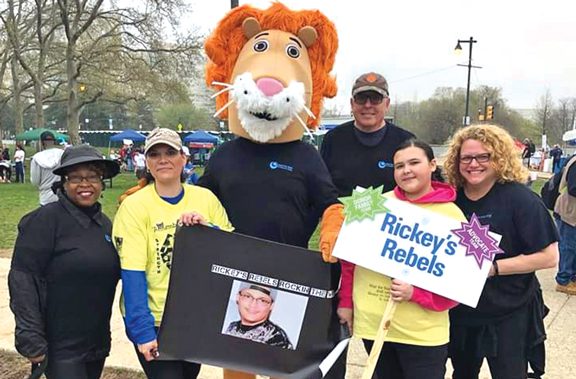
“We’ve decided to turn our tragedy into something new, something bright.” – Dawn Ortiz
Rickey Colomy had his first surgery before he was a year old. He was born with a vascular malformation, and was a patient at CHOP, where he’d undergone 18 surgeries by the time he was 21.
Because of his condition and his surgeries, Rickey was at an increased risk for blood clots, says his mom, West Deptford’s Dawn Ortiz. The family was vigilant about the signs and symptoms, and in 2014, he was hospitalized and treated for several small clots that had traveled to his lungs.
In early 2015, while recovering from his last surgery, Rickey collapsed while out with his girlfriend. He was taken to the hospital, where he died as the result of what doctors believed was a massive pulmonary embolism, a very large blood clot in his lung. He was 21.
Ortiz didn’t know her son was registered as an organ and tissue donor until the doctors told her it was noted on his driver’s license, but the news didn’t shock her.
“He was just a kid who was always helping somebody out,” she says. “When they told us he had the opportunity to help somebody in need, we decided to honor his wishes.”
Rickey was able to donate tissue, including his heart valves and corneas. Ortiz and Rickey’s family and friends have become outspoken advocates for organ and tissue donation, especially within the Hispanic community. They’re annual participants in Gift of Life’s Donor Dash event, under the team name Rickey’s Rebels.
“I know my son is now in 10 different states, helping people,” says Ortiz. “He gave the gift of sight to 2 young men – one in New Jersey and one in Pennsylvania – and they both have written to me. I think, if they’re seeing the world through Rickey’s eyes, they’re going to see all the beauty of life.”
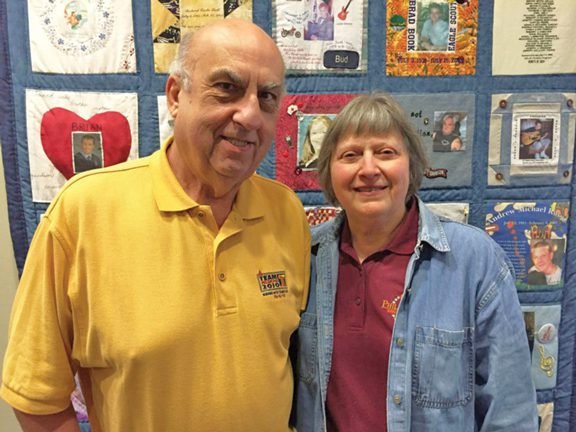
“I didn’t want anybody to feel what I was feeling if something could be done to save their life.” – Vivian Gano
In 1985, Tom and Vivian Gano sat their kids down to talk about organ donation. They’d seen a documentary, and though they’d never known a donor or recipient, they wanted to make sure their 3 teenagers knew about their wishes: “If anything ever happened,” says Tom, “we told them we wanted to be donors.”
Two years later, in July of 1987, tragedy struck the Gano family. Their middle child, 16-year-old Curtis, was crossing the busy intersection at Route 70 and Springdale Road in Cherry Hill when he was hit by a van.
“He ended up at Cooper Trauma,” says Tom. “We were there around the clock with him for a day and a half.” After repeated tests showed no brain function, Vivian asked the doctors about organ donation.
“Curtis was able to donate all of his organs, plus his corneas and skin,” says Tom. “His heart and lungs ended up being transplanted into a 53-year-old man with 2 children. One of his kidneys went to a 34-year-old man with 2 children, and the other to a 17-year-old boy. His pancreas went to a 45-year-old man with 3 children who’d suffered from diabetes his whole life. After the transplant, he was diabetes-free.”
Vivian felt donation was a way to keep Curtis, at least in some way, alive and to ensure that his life and death had meaning. They’ve spent the three dozen years since Curtis’ death telling his story. They regularly visit high schools to encourage students to become registered organ donors. As of 2022, they’ve spoken to more than 300,000 students.
“My son is a hero,” says Vivian. “He’s saved lives. A lot of lives.”


